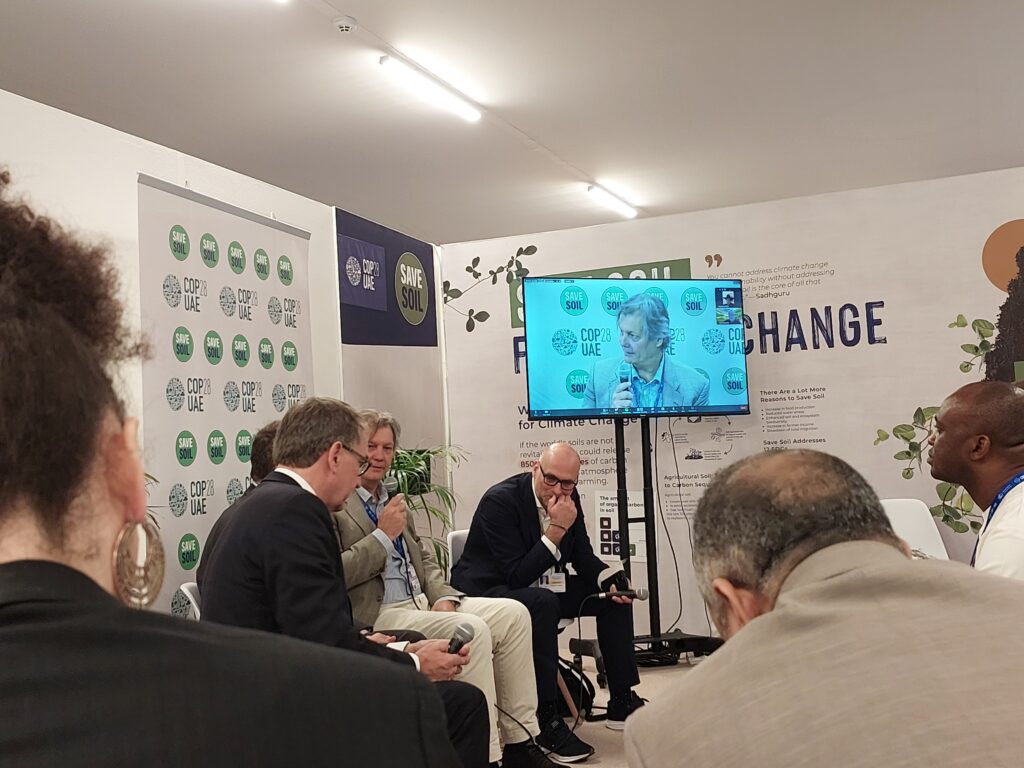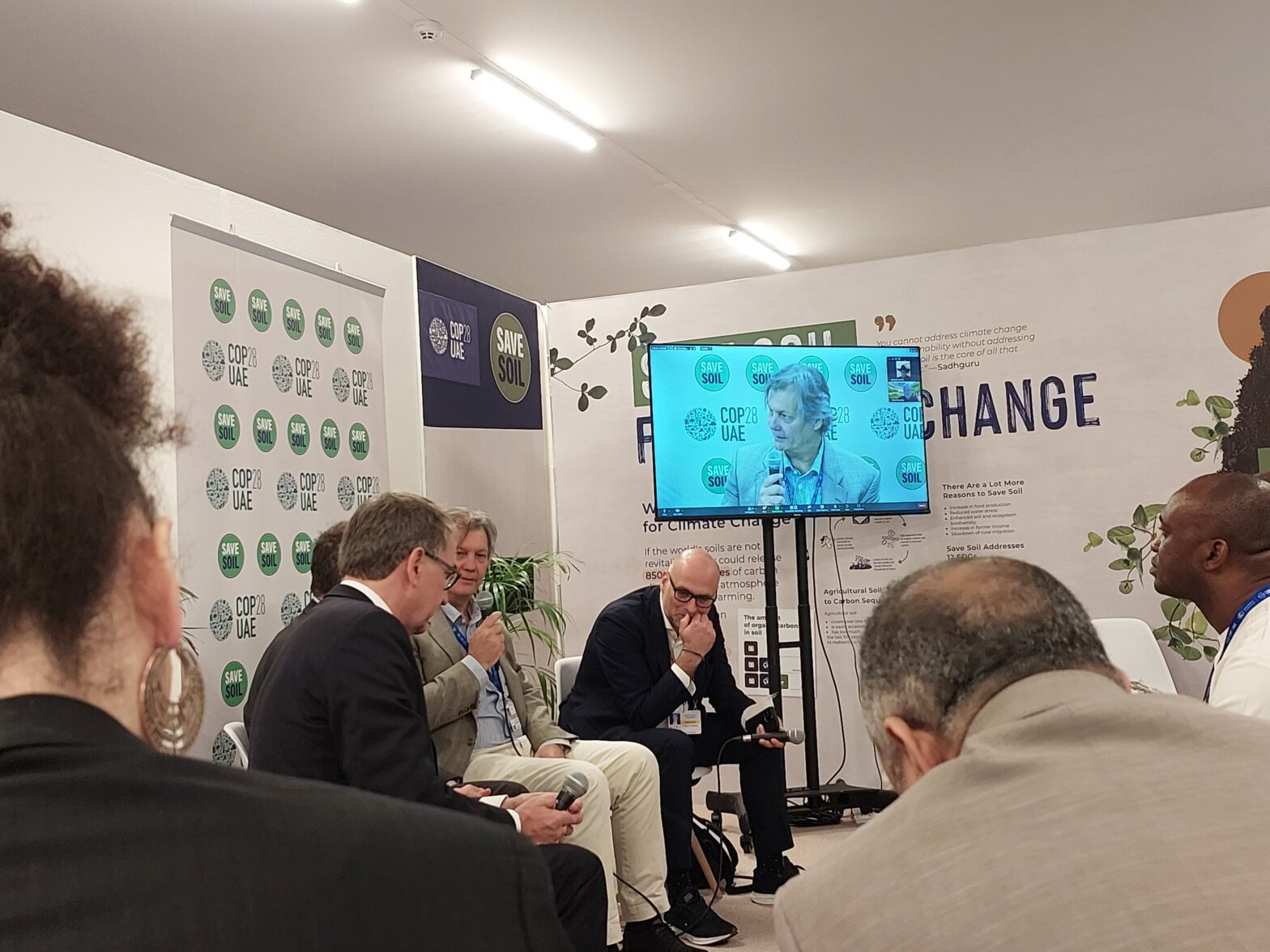By Jasmine Sone
As I sit here contemplating the future of our food, a disturbing fact enters my mind: only roughly 60 harvests are left in our topsoil. That’s all. It takes 1,000 years to produce three centimeters of topsoil, and if the current degradation rate continues, it is projected that the world’s topsoil might disappear entirely in 60 years. This impending loss underscores the grave truth that we only have 60 chances to cultivate the indispensable soil layer required for the global food supply. To say the least, the reality is daunting.
Soil was never a subject that piqued my interest. I was aware of its importance, but it was not something I actively tried to investigate or learn about. Nonetheless, the debates on soil at COP28 were eye-opening. Among these discussions, I found three talks particularly interesting, each shining light on a different aspect of soil’s critical role in combatting climate change.
The first talk, led by invited speaker Bayan Athamneh, the Soil Quality Section Manager at the Environment Agency Abu Dhabi, focused on soil salinity management and water conservation, explicitly emphasizing the issues faced by Abu Dhabi’s agricultural landscape. The data provided a grim picture of significant land degradation caused by high temperatures, insufficient rainfall, weak soil structure, and anthropogenic activities. Shockingly, salinity affects almost 80% of Abu Dhabi’s irrigated land, reducing crop production by half and driving farmers to abandon their farms. Bayan and her team’s soil salinity management plan, written after extensive surveys of 4000 farms, emerged as a critical step, advocating for improved groundwater usage and specialized agricultural methods to address these pressing challenges.
Another fascinating discussion that I was able to attend was “Healthy Soils: Game Changers to Meet Food and Climate Goals Within Planetary Boundaries.” The essence of the exchange was that all Sustainable Development Goals (SDGs) are linked to soils, either directly or indirectly. The speakers emphasized the significance of healthy soils in carbon sequestration, biodiversity promotion, and improved fertility and water retention. Soils are vital allies in our pursuit of sustainability.
The third talk, organized by Conscious Planet through the Save Soil campaign, delved into the impact of conscious practices in rearing livestock on soil health. While noting livestock’s significant contribution to soil vitality, the discussion stressed the urgent need to reconsider our existing methods thoroughly. The panel emphasized the urgent need for a paradigm shift toward conscious livestock rearing, advocating a nuanced approach that respects cultural and geographical disparities. It highlighted the vital need for balance and holistic reform: rather than demonizing cattle, the focus should be altering the food industry’s horrible practices and embracing sustainable consumption patterns.

the Conscious Planet as part of the Save Soil campaign
Throughout these meetings, one message rang out loud and clear: farmers and ranchers/herders are crucial stakeholders. Their traditional knowledge and cooperation are critical in developing efficient soil management strategies. Furthermore, pushing policymakers to include soil health in climate policies emerged as a shared imperative.
The threads of these conversations construct a narrative emphasizing collaboration, innovation, and equitable policy reform. There are just 60 harvests left, yet there is still hope. By empowering farmers and ranchers/herders, honoring traditional wisdom, and advocating for systemic change, we are paving the way for sustainable soil management. It is a collective effort, one that spans cultures, industries, and policies.
This revelation has instilled in me a new sense of urgency. Soil, often overlooked, is now a critical component in our fight against climate change. It’s more than simply dirt; it’s the foundation of our existence. The countdown to those 60 harvests is ticking, pressing us to act quickly. With each seed planted, each policy reformed, and each tradition honored, we cultivate not only the earth beneath our feet but also a fertile and sustainable future.
